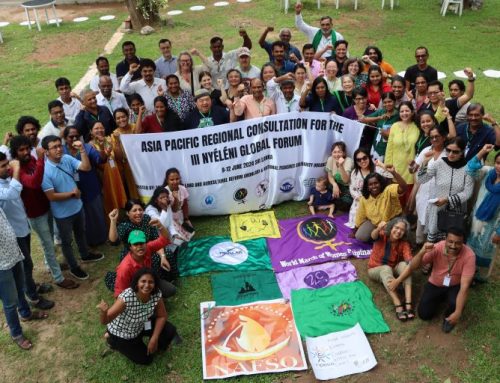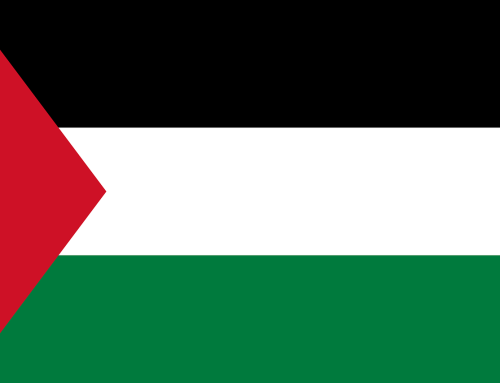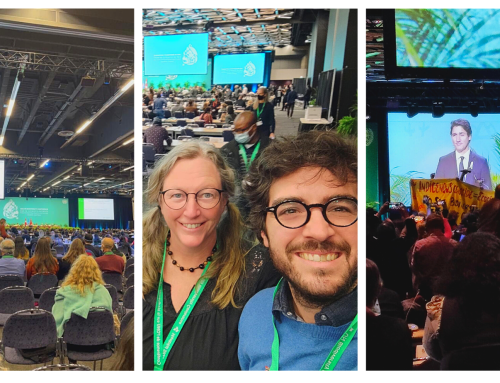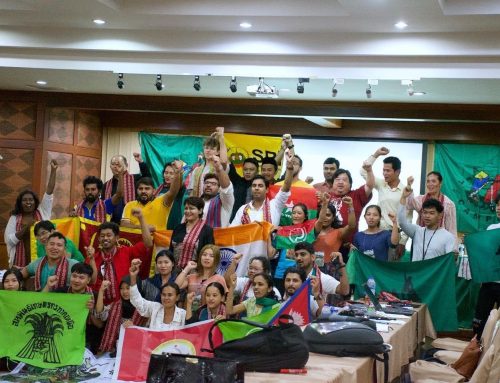April 17, a Day to Remember the Life and Death Struggle for Land
A day that brings millions of farmers and agricultural workers together in solidarity against corporate greed gains even starker relevance this week with the murders of rural workers Vilmar Bordim and Leomar Bhorbak in the state of Quedas do Iguaçu in the state of Paraná in southern Brazil.
Bordim and Bhorbak, members of the Landless Rural Workers Movement (MST), were living with their wives, children and 1,500 other families in an encampment on the Rio Dos Cobras estate on lands allocated, by law, to agrarian reform. Security guards of the Araupel logging company, previously exposed for falsifying land titles, ambushed the men, who were shot while retreating.
This follows the March assassination of human rights defender and environmental activist Berta Cáceres in Honduras. Cáceres was gunned down in her home despite being given ‘special protection’ by local authorities after receiving death threats for leading protests against the Agua Zarca hydroelectric scheme.
Unfortunately these names will join those of hundreds killed in resistance against corporate land and resource grabbing in this century alone.
For the international farmers’ movement La Via Campesina April 17 is an occasion to recognise those who have died in these very struggles. On this day, in 1996, 19 other members of MST were killed in Eldorado do Carajas, Brazil, while fighting for land and justice.
Violence against protesters and human rights defenders is familiar to Brazilians and the MST is at the forefront of these conflicts. Between 1985 and 2006 nearly 1,500 land reform activists and peasant farmers, including children, were killed in rural conflicts. Only 8 per cent of cases have ever been brought to trial.
In a country of unrivalled inequality, those who live in the countryside are the most affected. One per cent of landowners control 45 per cent of farmland, a legacy of the large land grants or sesmarias to privileged Portugese families and the institutions of slavery in the colonial era.
In the mid-1990s MST started targeting large global corporations to protest their growing influence in the countryside. Recognising a new set of obstacles to land reform, particularly the green deserts of monoculture, the movement gained some powerful enemies with transnational reach and influence.
In drawing attention to the negative impacts of the industrialised food system on small-scale agriculture April 17 becomes more than a day to remember those who have died fighting for their right to land.
La Via Campesina’s central message is the importance of food sovereignty – the right of nations to decide their own agricultural production regimes, with priority to local production and consumption.
Their argument is that food is not a commodity that should be traded lightly and without regard for the livelihoods of those who produce it.
They attribute the crippling hunger of close to 1 billion people to the domination of the global food system by corporate agri-business and an unjust international trade regime that makes small-scale agriculture unprofitable and unsustainable.
AFSA Statement on International Day of Peasant and Farmer Struggle
As members of the Australian Food Sovereignty Alliance (AFSA), we recognise that the global industrial food system is rooted in structural injustice. We recognise the urgency and responsibility to confront the widespread influence of corporate agribusiness and transnational corporations, many of which are strongly supported by our governments. We reject this dominance by corporations that often comes with political support for repressive and anti-democratic regimes. Within Australia, we denounce the devastating policies that have led to the dispossession of land of the Indigenous people and the violation of the right to healthy and affordable food for the 1.2 million Australians who are food insecure. We work to build solidarity with these communities, and those who feed them through ethical and ecologically sound farming, in Australia and across the world.




